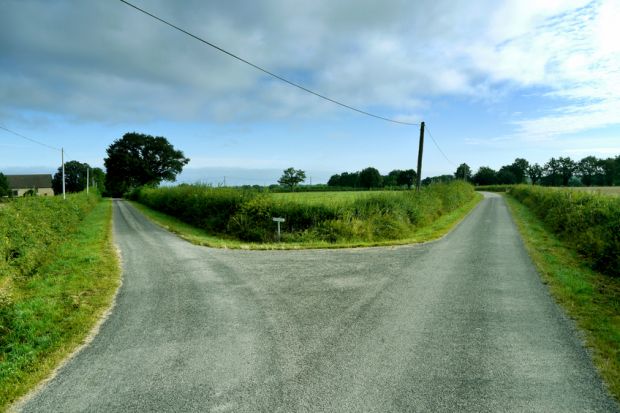The academic boycott of Russia over its invasion of Ukraine signals the end of an “overly optimistic, internationalist version” of science cooperation, according to a German university leader.
Many European governments have asked academic institutions to freeze relations with their Russian counterparts in the wake of the invasion. Pan-European umbrella bodies have also suspended Russian member institutions, and the European Commission has stopped funding entities in the country.
“I think maybe the time of an overly optimistic, internationalist version of science diplomacy and science cooperation will come to an end,” said Jan Wöpking, managing director of the German U15 group of research universities.
“We’ll have collaboration and cooperation and openness, and it’s so vital and so important; but will we be having this on a global scale, or will we be having it in blocs? In areas of like-minded countries?” he asked, speaking at an event hosted by the Udice group of French research universities.
The break in Germany’s research relations with Russia was part of a wider shift, he said, referring to a speech in which Germany’s chancellor, Olaf Scholz, called the invasion a “watershed” moment for German foreign policy, announcing €100 billion (£83 billion) in defence spending. In Germany, “science has effectively become part of the sanctions portfolio”, he said.
Kurt Deketelaere, secretary general of the League of European Research Universities, said the European Commission’s decision to cut off funding to Russia was “a mistake” and “the wrong signal to send to the Russian academic community”. He contrasted the modest funding Russia has won for European Union research with the hundreds of millions paid to Gazprom, the state-owned energy company.
He said the decision of European governments to request that institutions cut ties with Russia was a “violation” of academic freedom and institutional autonomy. Research universities were “clever and mature enough to decide and to figure out” which institutions were suitable partners, he explained.
Europe should reflect on what the decision to cut ties with Russia means for its other research relations in the longer term, said Jan Palmowski, secretary general of the Guild of European Research-intensive Universities.
“We really do need to really reflect on what our current actions mean in terms of future consistencies and what are the limits, because ultimately we will have to collaborate with systems we do not agree with,” he said.
Yves Flückiger, head of the Swiss rectors’ conference swissuniversities, said Europe would have to find a way to reconcile with Russia and that the “worst decision” would be to end collaboration entirely.
Professor Palmowski said the crisis in Russia relations only strengthened arguments to allow Switzerland and the UK to join the EU’s Horizon Europe programme. “We need to be much more conscious of our friends and not take them for granted,” he said.
Register to continue
Why register?
- Registration is free and only takes a moment
- Once registered, you can read 3 articles a month
- Sign up for our newsletter
Subscribe
Or subscribe for unlimited access to:
- Unlimited access to news, views, insights & reviews
- Digital editions
- Digital access to THE’s university and college rankings analysis
Already registered or a current subscriber? Login








